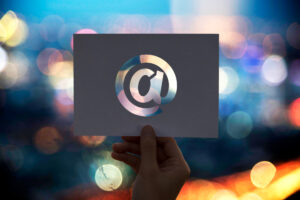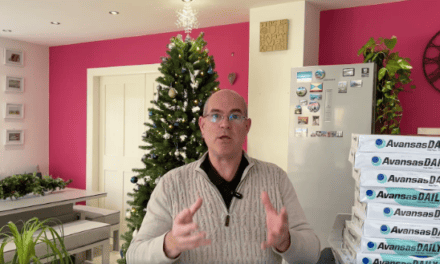 Case Study – Massively Improving Email Engagement with a Simple Twist
Case Study – Massively Improving Email Engagement with a Simple Twist
This case study on improving email engagement involves a brick-and-mortar business with a ridiculously low engagement rate on their emails. Even if you are an online business, you’ll learn from these tips.
Here’s the company’s problem.
They had about 5,000 subscribers and only 50 or 75 of them would open any given email. Yikes.
Keep in mind that this is a service-based business and email marketing was supposed to be their major sales nurturing vehicle. All emails were gained ethically from their local area using a lead magnet (incentive to join their list) offered on their blog and through advertisements.
The emails themselves are typical: Information mixed with promotions, and occasionally purely promotional emails. And the lead magnet was a good one that attracted plenty of leads every time they ran an ad.
But the problem was after getting the lead magnet, subscriber engagement numbers would drop massively to less than 15% of subscribers every single time an email was sent.
The business owner had two theories for why that was happening – either the emails were poor or they were attracting the wrong kinds of subscribers, in which case they would need to change the lead magnet.
If you were advising this business owner, what would you suggest?
They hired a marketing consultant who spent time poring over the emails, the lead magnet and the numbers. It turns out that their lead magnet was good enough to attract the right kind of prospects for their business. The problem was getting subscribers to consume the emails after they received the lead magnet.
Here’s how the consultant solved the email engagement problem:
They broke down the lead magnet into a series of 10 emails that comprised an email course on the subject. The idea was to train subscribers to open the emails whenever they saw them in the inbox. When most people download a PDF, they plan to read it later, whereas emails are usually read immediately.
To make this email course they added a small amount of content and did some other things to the emails that we’ll cover in a moment. Keep in mind that for this to work, the emails have to be enticing enough to get readers to continue opening and reading them. Simply breaking a PDF into small sections might not be enough for this to make a big difference.
This small change in how the lead magnet was delivered resulted in 81% engagement through the first 5 days of the course and 72% over the full 10 days. As you see some readers were lost in the second half of the email course, but that’s still a massive improvement over 15%.
Furthermore, when the course was finished (all 10 email lessons were delivered), subscribers continued to engage at an average 44% email engagement for the next 8 weeks.
Sales also increased dramatically because people were now opening and reading the emails as well as clicking the links.
They even received responses from readers such as, “Thanks for this, can’t wait to get tomorrow’s email.”
As mentioned, a few other changes were made:
WIIFYR – What’s in it for your readers? Every email was written to give the reader what they wanted, including great info they could use, stories, entertainment, humor and special offers. It’s not about the sender; it’s about the receiver.
Storytelling – Stories were inserted here and there about the problems customers had and how they were solved with the service, as well as stories of people who didn’t use the service and also a story of how the service was started. They even used two completely non-related stories that nicely segued into the point being made. Yes, there were lots of stories, but most of them were short and to the point.
Cliffhangers – Two of the stories were continued in the next email. Want to know what happened next? Check your email tomorrow.
Teasers – Each email contained great content as well as teasers on what would be covered in the next email.
Calls to Action – Every email was another opportunity to ask the reader to do something, whether it was to go to the site, fill out a form, ask or answer a question, etc.
Reply Back Call – Two of the emails asked readers to answer a quick question by replying with a word or two in the subject line. This was more about increasing deliverability than anything, but it also created engagement and made the emails more memorable.
Free Offers – These were added later, and they worked well. Inside the course there are offers to take ADDITIONAL email courses, thereby getting people to engage even more with the emails as well as raising their hands to indicate what other services they are interested in.
Creating Expectation – The emails were sent at a specific time each day and readers were told to expect it at that time the next day.
Creating Excitement – Emotional triggers were pulled whenever possible, and excitement was built into each email. This takes some finesse, but it makes a big difference. As an example, remember that one teacher you had in high school who engaged the students with excitement for the topic? Now imagine that teacher writing the emails and you get the idea.
More tips for improving email engagement
 Keeping the End in Mind – What do you want your subscribers to do? Whatever it is, tailor your course so that taking the action you want is the only logical next step for the reader. For example, your email course teaches how to get free traffic using SEO, but the more the reader learns, the more they realize they’d love to have a professional handling it all for them.
Keeping the End in Mind – What do you want your subscribers to do? Whatever it is, tailor your course so that taking the action you want is the only logical next step for the reader. For example, your email course teaches how to get free traffic using SEO, but the more the reader learns, the more they realize they’d love to have a professional handling it all for them.
Subscriber confirmation email – Include a short text to let readers know to expect a welcome email in the next minute or two after they confirm their subscription. This way they consciously look out for it even if it ends up in the spam or promotions tab.
Welcome email – Fill this email with all the benefits of reading the future emails. This isn’t about selling your product. It’s about showing them everything they have to gain from taking the email course, reading every single email so they miss nothing, and how much their life can change because they open the emails. You might consider using bullet points in this one.
Request a Welcome Email Response – In the welcome email, ask subscribers to reply with their response to a question. It could be as simple as confirming they received the email, or would they prefer benefit one or two, or what is their favorite _____? When they respond, their email provider will register your address as one the receiver wants to engage with. A reply has greater effect on deliverability than whitelisting and it’s a more natural action.
Open with Benefits – Lead each email with the benefits the reader will get from reading the rest of the email. Essentially in the first line or two you are selling then on reading the rest of the email.
Conclusion on improving email engagement
Always ensure that every email you send is beneficial to the reader. It’s not about you or your product, it’s about what your reader wants to achieve. This is what will keep them coming back day after day to read your emails.
So of course, this article can only conclude with an invitation for you to join my own email marketing list for solving Internet Marketing problems =>here.
I show aspiring online marketers why they might not yet be earning commissions. This will let you check out how well I am performing with my own emails. You will need to confirm, in an email I send you, that you actually want to receive my emails, so please don’t miss that step.
Also, remember it’s a two-way street, so you are welcome reply to any of my emails to ask questions.











